Margam rail workers deaths: Families left 'devastated'
- Published
Gareth Delbridge's son-in-law calls for changes to rail line working conditions
Families of two rail workers who died after being hit by a train have said every day is "a living nightmare".
They want changes in rail line working conditions after Gareth Delbridge, 64, and Michael "Spike" Lewis, 58, were killed by a passenger train on 3 July near Margam in Port Talbot.
Mr Delbridge's son-in-law Adrian Grant said the families were awaiting the conclusions of three inquiries.
An initial report said there was "no safe system in place".
Early investigations found Mr Delbridge, from Kenfig Hill, Bridgend, and Mr Lewis, from nearby North Cornelly, had been using a tool with a petrol engine and wearing ear defenders, meaning they did not hear the train, which was travelling from Swansea to London Paddington.
A third worker was treated for shock but was not injured.
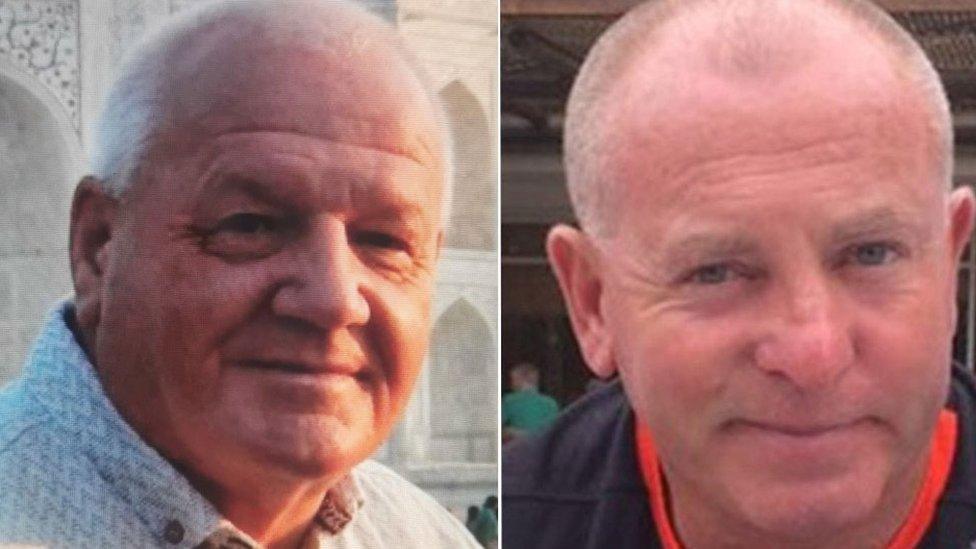
Gareth Delbridge (L) and Michael Lewis (R) were hit by a train in July
Network Rail and Great Western Railway's initial report said six staff were working on the line and separated of their own accord into groups of three and this meant there was no official lookout.
Mr Grant, 54, from Porthcawl, said the bereaved families believed the men would have never jeopardised their safety and called on Network Rail to change working conditions for staff on the railway lines.
Network Rail safety director Martin Frobisher said it was continuing its investigations and "nothing will lessen the pain, but understanding what went wrong and learning from that will".
Mr Grant said the deaths had "devastated both families".
"Every day is a living nightmare at the moment and a challenge," he added.
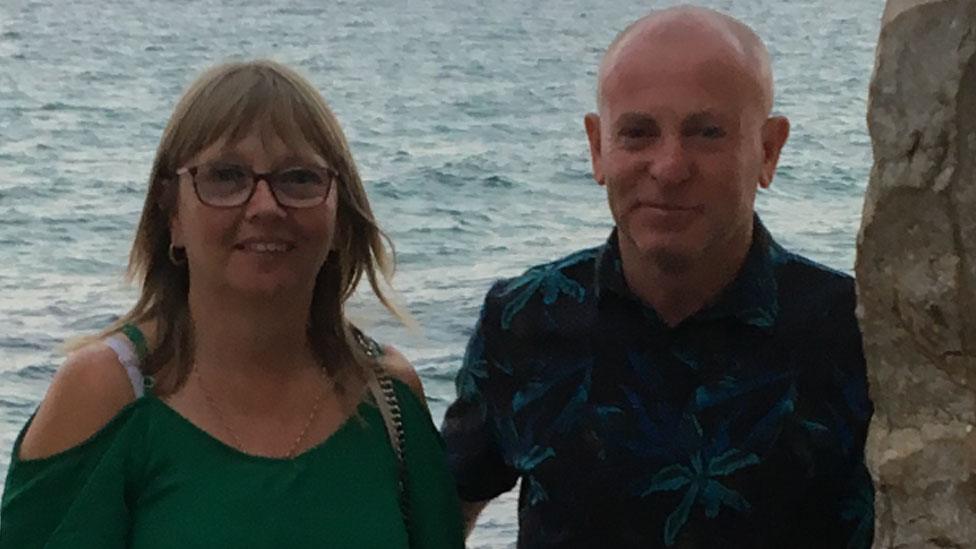
Michael Lewis and wife Dawn had been married for 35 years
Mr Grant said: "I understand that something went tragically wrong that day and I'm in a firm frame of mind that when you send people off to work, especially two people with all that experience of the rail, you expect them to come home.
"Both of these guys had worked on the rail for over 40 years with fantastic exemplary records of safety and - for them not to come home - something has gone tragically wrong.
"We will campaign hard to make sure this doesn't go away until things are changed."
Three official investigations have been launched by the Rail Accident Investigation Branch (RAIB), the Office of Rail and Road (ORR) and British Transport Police.
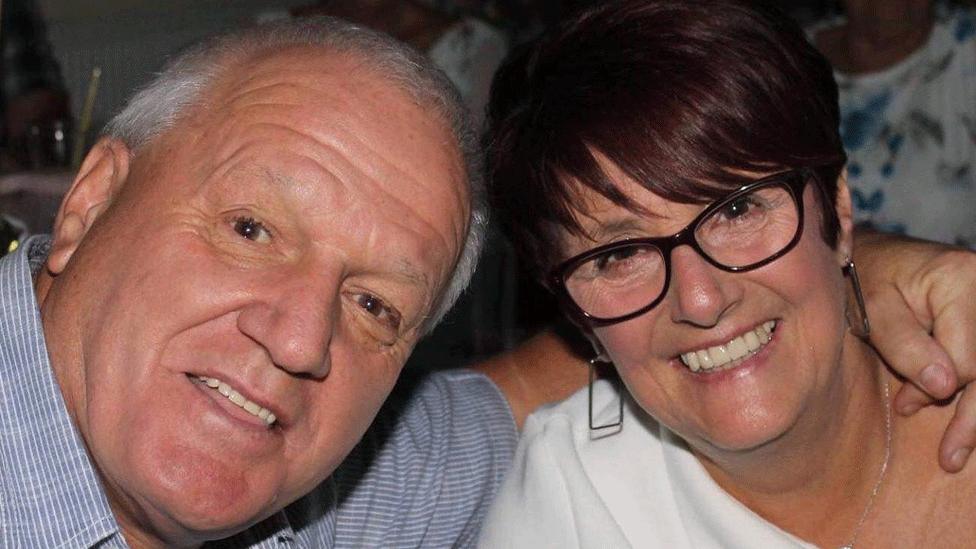
Mr Delbridge had been married to wife Carol for 44 years and they had three children, seven grandchildren and two great grandchildren
The Network Rail and Great Western Railway report said the men had been instructed to work on freeing, oiling and retightening bolts by the unofficial person in charge, who was also to act as a lookout.
There was a problem with a bolt, meaning the lookout became involved in the rail work and suggested putting further oil on the bolt, despite being instructed to remain in a position of safety.
It also said groups should be about 20 yards (18m) apart during work, but the workers split and were 150 yards (137m) apart.
Mr Grant said: "This was work they would always do. It was tools they would always use.
"The only thing we know [is] the work had changed and moved around quite a bit that day and, obviously, that's what the independent investigations at this time are looking into whether that had an impact on what happened or not."
Mr Grant said: "Network Rail say they are carrying out a £70m campaign to stop accidents happening like this.
"But they've tried this before but I'm hoping this time - from the findings of these three investigations - changes will happen... and we will see results from this investment rather than just words on paper."
Mr Frobisher said: "The whole railway family shares the loss of Gareth Delbridge and Michael "Spike" Lewis.
"We have shared our initial investigation into what happened and are continuing our investigation into the root causes before we make recommendations for our organisation and all of our people for the future."
The company said the majority of its work was carried out on "closed track", where no trains run.
"Whether the train lines are open or closed, clear plans, roles and responsibilities are essential and no work should be done on the railway without a safe system of work plan, which is briefed to everyone in the team before they go on to the track to work," it said.
- Published1 October 2019
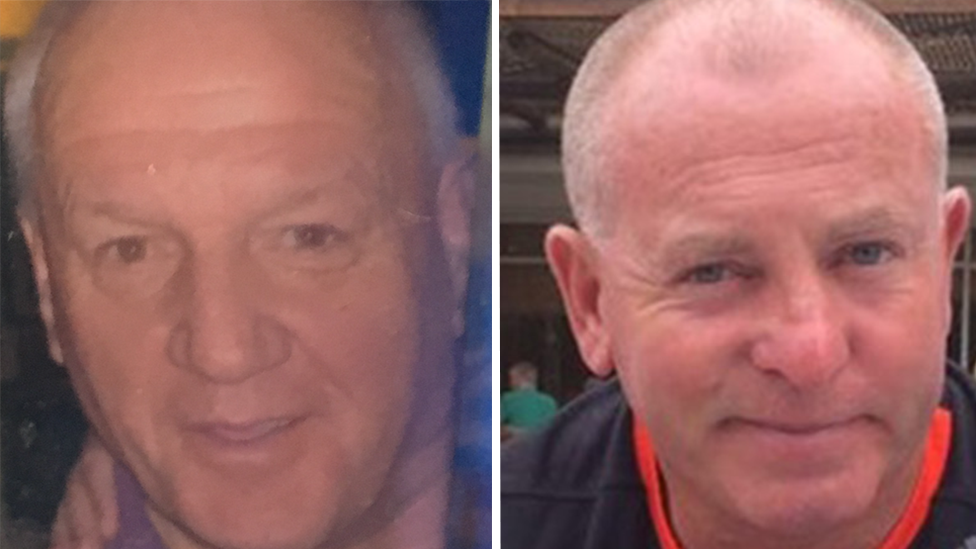
- Published24 September 2019

- Published11 July 2019
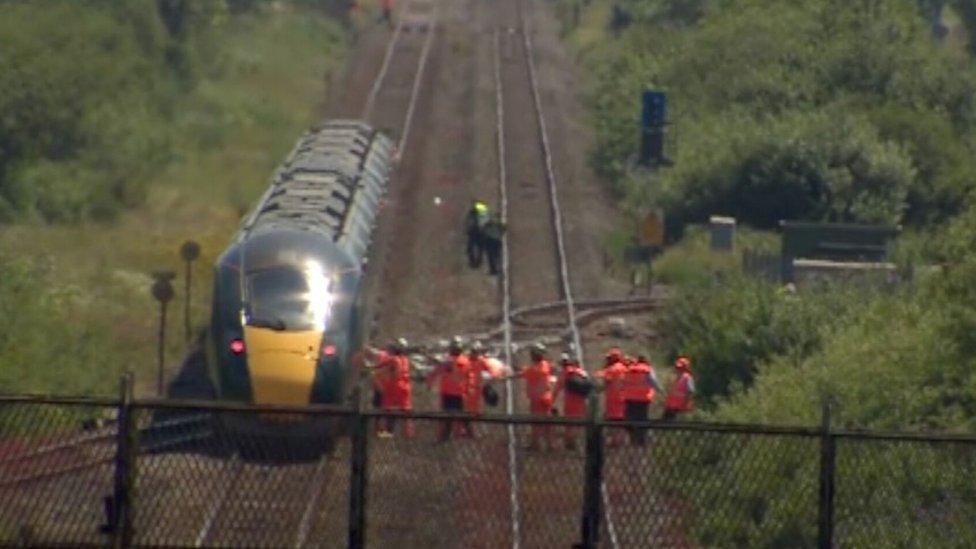
- Published5 July 2019
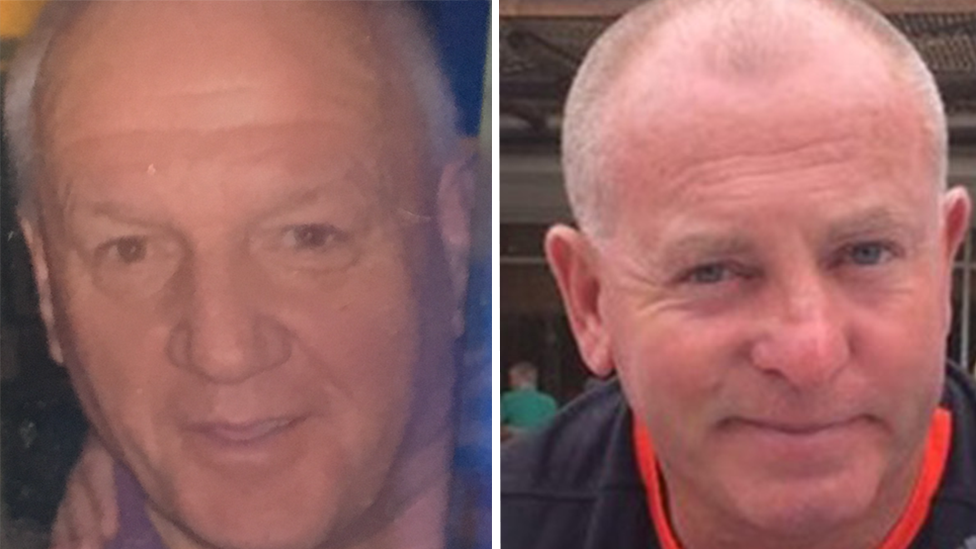
- Published4 July 2019
